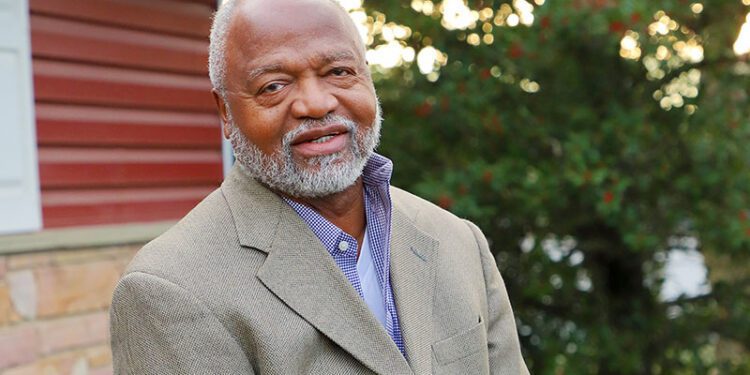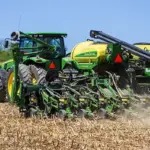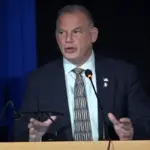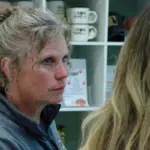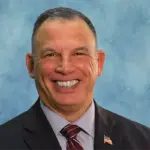A Retiree’s Remarkable Legacy on Various Boards Spanning Decades in Carroll County
compiled by Kym Byrnes, photography by Nikola Tzenov
Bernard “Bernie” Jones: Reconnecting with His Roots in Retirement
Bernie Jones grew up in Carroll County when there weren’t a lot of obvious paths to professional and corporate success for a Black man. Through networking and perseverance, Jones eventually secured jobs that had him working as an engineer on groundbreaking projects of national importance. Despite traveling the globe, he has always chosen to make Carroll County his home. Now retired, Jones is doing his best to make life better for the residents of Carroll County by volunteering his time to serve on numerous boards and committees.
“I really like working with people, helping people get things they need. The Historical Society is helping people preserve old buildings. The Land Trust is helping farmers preserve land. The Literacy Council is helping people build important life skills. I’m helping people who are less fortunate than I am. I’m not that well off, but I share what I have.” – Bernard Jones
Are you a Carroll County native? Did you grow up here?
I grew up in Carroll County from the age of about 2. My family is from Rocky Mount, North Carolina. My parents moved up here with my mom’s parents around 1946. I went to high school here until 1960, then went to Morgan State University for two years.
Did you always know you wanted to be an engineer?
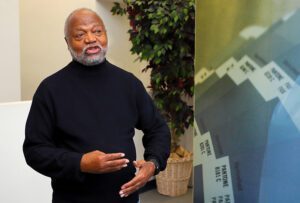
When I was at Morgan State, I needed a job, so I talked to my brother-in-law, who worked for Black + Decker as Mr. Decker’s driver. I told him I wanted a job, but not as a janitor. He got back to me and said that according to Mr. Decker there were no Blacks working at the company above a janitor. About a month later, my brother-in-law came back to me and said that they would hire me if I got into the Hopkins engineering program. So, I took a test and got into Hopkins.
I couldn’t afford day school, so I went to night school. I worked at Black + Decker until 1969, and I worked on the moon drill, a special project Black + Decker was awarded. We built this drill to take core samples when they (astronauts) landed on the moon. As I was nearing completion of the Hopkins program, I talked to my supervisor about getting a raise and he said I wouldn’t get a raise when I graduated. I took my vacation and never went back.
If you go back to the ’50s and ’60s, there weren’t many Blacks in corporate; there weren’t Black-owned businesses. There was one school where all the Blacks went. My brother-in-law went to Robert Moton (Elementary School), and due to integration, in his senior year, he went to Francis Scott Key High School. He graduated valedictorian of his class. I had never done anything in engineering, so it was about getting the job. The thought of working on something for the moon was exciting. I got enough education and professional experience, (and) I qualified. By then, we’re in the ’70s and ’80s, and it got easier.
What came next? How did you end up working on submarines?
A guy I went to Morgan State with was working at GE. I applied there in 1970 and got a job as a mechanical engineer technologist in their major appliance lab. I stayed there for 10 years until they closed that facility. I was looking for a job again, and a buddy of mine was working for an engineering company in the Bethesda-Rockville area. I got a job there as an engineering technologist, working on the Trident submarine program. I worked at that job for 38 years, and it ended up being the best job I ever had. I got to travel all over the world following submarines. This was the first nuclear sub built by the U.S.; we went through the whole construction process. I worked there so long (that) I got tired and decided it was time to retire.
Was Carroll County always your home base? Did you move around with these different jobs?
When I left Morgan State, I lived in Baltimore City, and in 1966, I got married. My wife was a nurse; she went through the program at the University of Maryland. Then, in 1968, I built a house in Carroll County. My grandfather still lived here. So we moved here and both (of us) commuted to work. I went to Towson, and she went to the hospital on Howard Street (in Baltimore).
What does retirement look like for you?
I retired on March 31, 2018. I’ve been married to the same woman for 57 years. She retired a while ago. We have four adult kids, all living locally. I have a granddaughter who just graduated from Hood College. They’re all out there doing their thing. Over the last few decades, I’ve volunteered for local organizations, and now that I’ve got more time, I’m doing more of that. In the ’90s, I served on a couple of boards, like the board of directors of Union National Bank and the Carroll County Land Trust. I’m a life member of the Carroll County NAACP. I have been on the board of the Carroll Community College Foundation for 22 years and was recently honored for being the longest-serving board member. And I feel fortunate to have served on the selection committee for the school’s new president. In recent years, I’ve joined more boards, including the Historical Society of Carroll County, the Kiwanis Club of Westminster and the Literacy Council.
You’ve been traveling and working around the world. What has kept you in Carroll County?

Right before I left Black + Decker, I carpooled with other people to Towson, and there weren’t many places I saw that I wanted to live in. Then, I was gonna buy a house in Columbia when I worked at GE, but I couldn’t afford it. We built on a dirt road in Carroll County that was part of a 13-acre farm; it was really nice. Then people started building, started paving roads, and now you have to look real hard to find a dirt road in Carroll County. There is a lot of history here; there are a lot of things about Carroll County that have been here for a long time.
You spend much time volunteering and serving on nonprofit boards and committees. Why is this service important to you?
I’m learning a lot about Carroll County now that I’m here more. I was always leaving Carroll County for work and would sometimes be gone for months at a time. I really like working with people, helping people get things they need. The Historical Society is helping people preserve old buildings. The Land Trust is helping farmers preserve land. The Literacy Council is helping people build important life skills. I’m helping people who are less fortunate than I am. I’m not that well off, but I share what I have.


